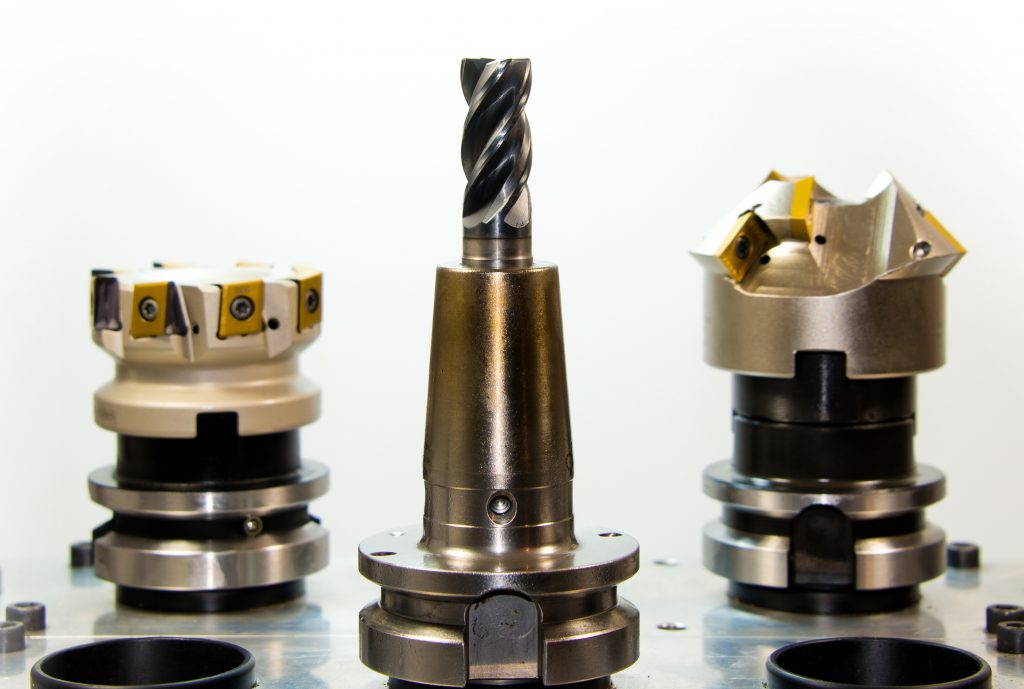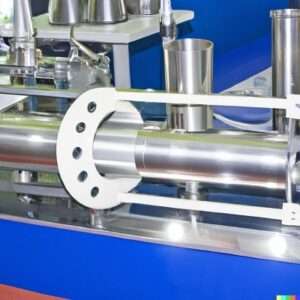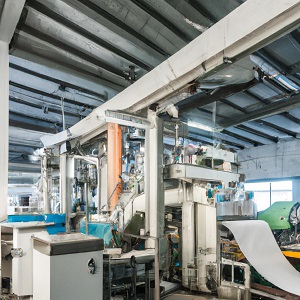Savings for the Makers and Creators Shaping the Future
The manufacturing industry plays a significant role in driving economic growth and community development across the USA. One way that state and local jurisdictions try to support this industry is through sales tax exemptions. These exemptions help reduce the overall cost of manufacturing as well as promote economic growth.
States that provide incentives for companies to build and operate production facilities within their jurisdiction stand to benefit from a range of positive outcomes. These include the creation of new jobs, increased tax revenue, and a boost to local businesses. By attracting and retaining manufacturing companies, states can help to strengthen their economies and improve the quality of life for their residents. Sales tax exemptions offered to manufacturing companies are a mutual benefit.

Are you paying sales tax on exempt tools and supplies?
Sales tax savings on manufacturing exemptions can add up to tens or even hundreds of thousands of dollars in a single year.
That capital can be better spent investing in the growth and efficient operation of your company.
Identifying and taking advantage of these exemptions as soon as possible is key.
Although there are fundamental principles of sales tax that apply in all jurisdictions it is important to note that each state creates its own sales tax laws based on the vote of the people – and the influence of industry lobbyists. This article will give a brief introductory overview listing some of the major business-to-business (B2B) sales tax exemptions available to manufacturers in most states that have a statewide sales tax. Key differences in two adjacent states will be listed to illustrate how each state applies its own sales tax laws: New York and Massachusetts.
This list is just an overview. There are many other general and specific exemptions available to manufacturers that offer significant savings to help improve profit margins. Several factors such as where, when, how, and if an item or service is used in the production process will determine the applicability of sales tax exemptions. Additionally, the sales tax statutes are written in such ambiguous “legalize” that what may seem like a clear-cut exemption is oftentimes disallowed or challenged by the taxing authorities. Years of administrative and judicial interpretation of sales tax statutes have resulted in a plethora of regulations, directives, technical information releases, bulletins, memos, letter rulings, judicial decisions, and precedents.
The sales tax guidance for New York and Massachusetts, offered by each state, can be found in the links at the end of this article. But please be advised that the previously referenced regulations, rulings et al that are relied on for guidance can sometimes seem completely contradictory to the statute.
You CAN “fight city hall” if you have the time, knowledge, experience, and resources to do so. Or better yet you can Contact B2B Sales Tax, LLC to do it for you! Knowing what is and is not exempt, how those transactions are interpreted by the state, and which forms to submit can be a bit confusing no matter how many times you read the law and guidance. We can help.
New York State Manufacturing Sales Tax Exemptions
New York State has a sales tax rate of 4%. Local sales taxes imposed by counties, cities, and other municipalities range from 4% to 4.875% making the combined total state and local rate as high as 8.875%.
New York State Statute of Limitations for sales tax assessments is generally three years from the date the tax return was due or the date the return was filed, whichever is later. However, if the taxpayer failed to file a return or filed a false or fraudulent return, there is no statute of limitations on the assessment of tax.
New York State Abatement of overpaid sales tax is recoverable up to three years from the date the sales tax was paid. The State of New York must issue valid abatements that are filed.

- Raw materials that become part of the finished product for sale are usually the single most significant recurring B2B sales tax exemption for manufacturers. The definition of what constitutes a “sale” is critical. These items are bought for resale.
- Machinery and equipment used directly and predominantly in the production of tangible personal property for sale. It is important to understand how the terms directly and predominantly apply.
- Parts attached to exempt machinery or equipment. The state may disallow certain parts that they perceive are not “attached” to the exempt machinery or integral to the actual manufacturing process.
- Supplies are items used in the maintenance of exempt machinery or equipment and items used or consumed directly and predominantly in production. The rationale for the direct use of supplies in the production process can sometimes be confusing.
- Manually operated tools used directly and predominantly in production.
- Installation, repair, maintenance, or service to exempt machinery and equipment. This relates to the amounts charged to the manufacturer for these services. New York charges sales tax on many services. Massachusetts does not. This exemption is often missed in New York.
- Utilities that are used directly and exclusively to produce tangible personal property for sale. Direct and exclusive use is very important for this exemption as bulk services measured through one or multiple meters like gas and electricity need to be apportioned to calculate exempt use. A utility study or alternative method to measure exempt use must be done to determine exempt use.
- Research and Development exemptions require that the items and services be used in the experimental or laboratory sense as well as meeting the direct and predominant use test. Many exemptions are available for true R&D activities but detailing them here is beyond the scope of this article.
Massachusetts Manufacturing Sales Tax Exemptions
Massachusetts has a sales tax rate of 6.25%. There is no local sales tax.
Massachusetts Statute of Limitations for sales tax assessments is three years from the later of the date the return was filed or the date the return was due. However, if the taxpayer failed to file a return or filed a false or fraudulent return, there is no statute of limitations on the assessment of tax.
Massachusetts Abatement of overpaid sales tax is recoverable up to three years from the date the tax was paid. The vendor may issue valid abatements but is not obligated by law to do so.
NOTE: Massachusetts has a general exemption for materials, tools, and fuel that become an ingredient or component part of tangible personal property to be sold. This exemption applies to all vendors whether manufacturer or not. There is a specific manufacturing exemption for those same items “consumed and used directly and exclusively in an industrial plant in the actual manufacture of tangible personal property to be sold”. The language of the statute and supporting guidance is often challenged as being unclear.

- Raw materials – See NOTE listed above – Exempt materials may be part of the product sold or “consumed and used directly and exclusively in an industrial plant in the actual manufacture of tangible personal property to be sold”.
- Machinery and equipment used directly and exclusively in an industrial plant in the actual manufacture of tangible personal property to be sold. Understanding how the state interprets the terms “directly and exclusively”, “Industrial plant”, “actual manufacture”, and “to be sold” is critical.
- Parts must be replacement parts for exempt machinery.
- Tools – See NOTE listed above – Certain tools may be consumed and used as allowed under this exemption.
- Installation, repair, maintenance, or service – In general, telecommunications services are the only taxable services in Massachusetts. But certain maintenance and service agreements involving tangible personal property need to be evaluated for status as a service or bundled transaction.
- Supplies – See NOTE listed above – Certain supplies may be “materials” consumed and used as allowed under this exemption.
- Utilities consumed and used directly and exclusively in an industrial plant in the actual manufacture of tangible personal property to be sold or in the heating of such industrial plant. Several factors must be evaluated in determining if the manufacturer qualifies for this exemption. Like New York the portion of qualifying utilities that are for direct and exclusive use must be determined.
- Research and Development – most of the same sales tax exemptions for manufacturing are allowed for manufacturers who do true R&D. The requirements to qualify for these exemptions are specific to R&D and beyond the scope of this article.
Massachusetts Sales Tax Guidance
Link to B2B Sales Tax inflation article
Taking advantage of all available cost-saving B2B sales tax exemptions is extremely beneficial and should not be overlooked. The accelerating trend of onshoring and reshoring manufacturing to the USA has created new supplier relationships as well as sales tax economic nexus issues. With a constantly shifting workforce, confusion over applicable sales tax exemptions, an uncertain economy, risks of inflation, and shrinking margins there may be a significant opportunity to save on sales tax for new, existing, and expanding companies.
